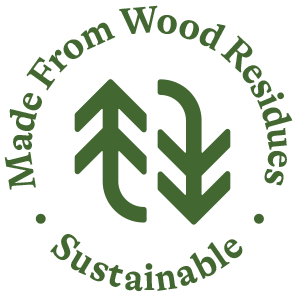Case study
Thomas Brothers Kiwifruit Orchard finds success with compost for struggling block
Success with compost when an orchard applied compost to their kiwifruit vines to increase the health of their soil which in turn increased their ROI.
- Customer since2016
- Product usedHort Compost
Overview
Azwood has been supplying Thomas Brothers Orchard with compost for their kiwifruit orchard for 7 years to help increase their soil health.
Their success with compost continues to show in their numbers and they plan to continue applying compost to avoid ending up back where they started.
Background
Thomas Bros is a multi-generation, family-owned orchard that cultivates, picks, packs & cools a variety of different apples, kiwifruit & cherries.
Residing near the Motueka River and the Tasman Sea, they have a mixture of sandy and clay soils with stone underneath which has provided challenges along the way for their kiwifruit orchard.
With fertiliser prices increasing and also pressure from the consumer to make more sustainable choices, Thomas Brothers were looking for alternative solutions to their problems.
At the Tasman soil health field day, they discussed their success with compost after working with a soil consultant and making the decision to band spread directly under the vines.
We’ve used Hort Compost on some of our Kiwifruit blocks. After applying it, we found impressive feeder root development and healthier canopy, contributing to better fruit
Steve Thomas
Thomas Bros Orchards
Challenges
Soil compaction became a persistent issue due to heavy machinery, vehicles, and frequent foot traffic in the orchard. Compacted soils lack proper aeration and drainage, inhibiting root growth and nutrient absorption by plants.
Also the roots of the kiwifruit plants were spreading too far and feeding in a substandard area. This occurred because the orchard's soil lacked sufficient nutrients and organic matter near the root zone. As a result, the roots had to extend further in search of nutrients, leaving the plants vulnerable to stress and nutrient deficiencies.
Assessment
As mentioned above, Thomas Bros have sandy soils with stone underneath. In between that sand and gravel, there is a hard pan that stops water from escaping and causes flooding issues. Water retention was another issue they were having... holding too much in winter and not enough in summer.
They noticed their kiwifruit roots liked to spread right out into the rows to feed and get their nutrients, which is not ideal due to tractor passes, rain and all the necessary things going on in the rows throughout the year creating compaction. Their plants were dying and crops were failing by not producing good fruit (size and taste).
“We have had a lot of problems with our kiwifruit block and compost has been one of the key things to getting it back on track.”
It was discovered that Thomas Bros needed compost to help break up the soil and provide nutrients. Azwood recommended Hort compost.
"6 years ago the leaves would be yellow at the start of the year and there was a lot of variation from each soil test. The ph levels were dropping rapidly because everything was washing through the soil."
Compost creates more consistency in the soil for better water retention and drainage. As the compost breaks down and works its way into the soil it provides nutrients for the plants in the areas it's applied which promotes root growth.
Kiwifruit hate excess water, so due to the flooding and compaction issues they were having in the rows, Thomas Bros wanted to encourage the roots to stay under the vines and get their nutrients from there. This is what they called the luxury feeder zone.
Outcome
Their irrigation system was changed to a drip line directly onto vines to avoid roots going out of the zone and they initially applied compost at the rate of 90m3 a hectare so the roots didn't need to spread so far out into the rows to get their nutrients.
Their soil test before application showed a Cation exchange capacity of 8 which is really low and it is now sitting at 12.
Their success with compost was seen in the first year. Their fruit on average was 7g heavier and they saw a 15% increase in productivity and fruit size. This increase was equivalent to 1000 trays per hectare which meant they got a 100% return on investment in the first year.
Compost range
Item 1 of 5
Related articles
Item 1 of 3

Social media
More from Azwood
Follow us on social media to stay connected and be the first to hear our latest news.


